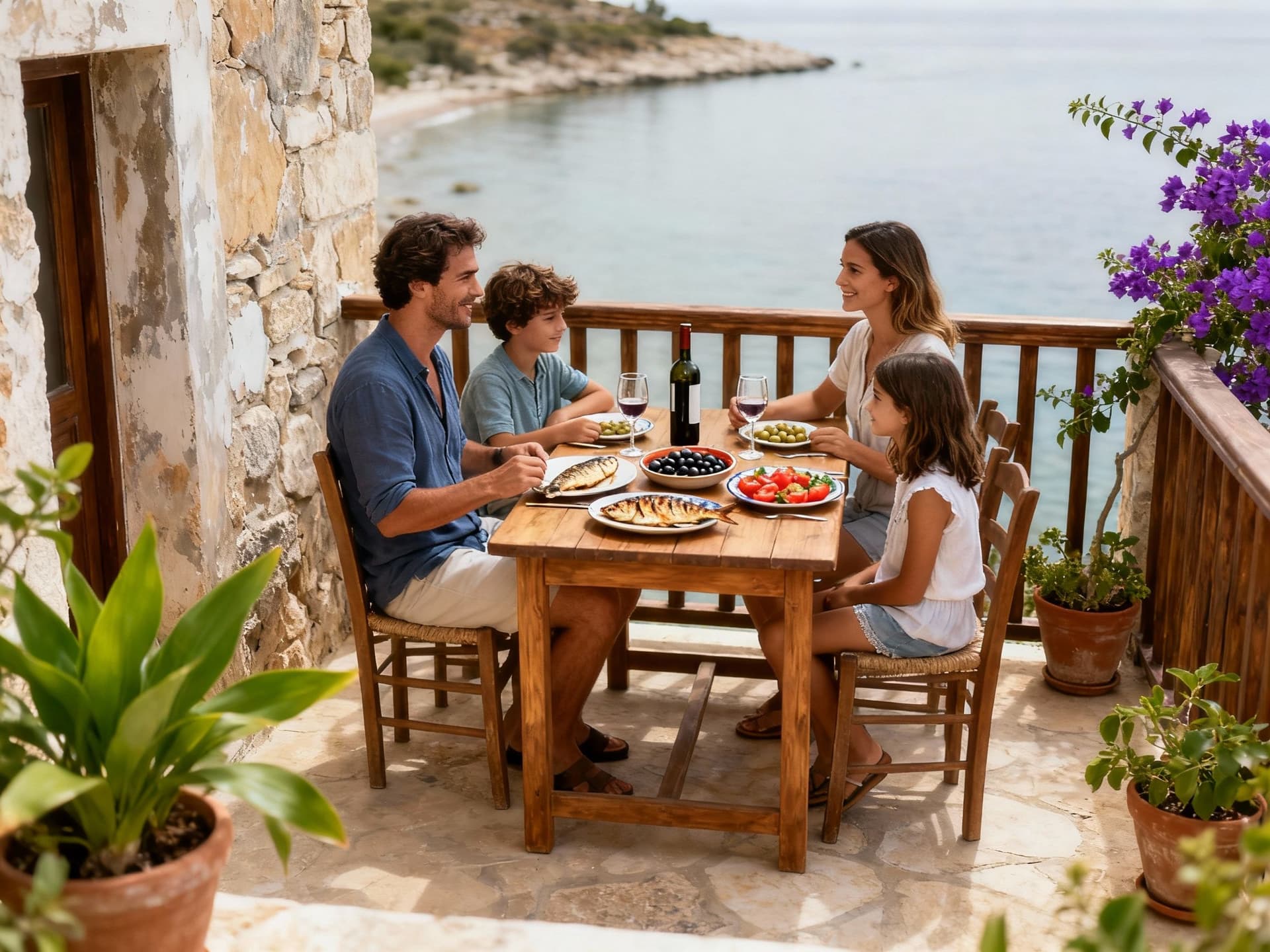How Greece’s Golden‑Visa Zones Reframe Where to Buy
Greece’s tourism rebound and Golden Visa reforms are reshaping where lifestyle and price align—visit in and out of season, check short‑let rules, and prioritise year‑round towns.
Imagine sipping an early espresso on a shaded table in Koukaki, then walking five minutes to a museum, and later catching a late ferry to an island where fisherman mend nets on the quay. Greece feels like a set of small, intense lives—neighbourhood rhythms, open markets, and seaside routines—that change with the season. But recent market analysis shows tourism and regulation shifts are already redrawing where international buyers should look.
Living the Greece lifestyle — streets, markets, sea

Greece is at once cosmopolitan and intimate: Athens neighbourhoods pulse with cafés and galleries, while island towns move to a slower, communal beat. Morning market stalls sell sea urchins and thyme honey, neighbourhood bars serve late-night frappés, and every town has a square where retirees argue politics and kids play. If you want heat, light, and convivial public life, Greece delivers on sensory detail—sea salt in the air, olive trees shading terraces, and a calendar of festivals that pulls streets together.
Athens micro‑life: Kolonaki, Koukaki, and the creative backstreets
Kolonaki is compact elegance—boutiques, midday cafés and uphill walks—while Koukaki is breathing room: small tavernas, ground‑floor galleries, and neighbors who know each other’s children. Walk Apollonos or Drakou streets and you’ll see a mix of renovated neoclassical buildings and modern apartments; interiors are often a blend of original tile and minimal contemporary kitchens. Buying here means urban access plus true everyday Greek life: bakeries at dawn, aperitifs at dusk, and festivals that animate the pavements.
Island rhythms: Mykonos vs Crete vs Sifnos
Islands vary as dramatically as neighborhoods. Mykonos can feel like a seasonal headline—packed in summer, quiet in winter—while Crete offers full‑year infrastructure and agricultural life. Sifnos or Milos feel local and craft-led: small bakeries, potters, and quieter seasons. Recent regulatory changes to residency-by-investment mean places like Mykonos and Santorini now sit in higher-value tiers, which in turn is shifting buyer interest toward less hyped islands and mainland alternatives.
- Lifestyle highlights to scout in person
- A morning coffee at Tailor Made in Koukaki followed by a walk up to the Acropolis Museum
- Sunday fish market at Varvakios in Athens for fresh ingredients and neighborhood gossip
- Late-afternoon taramasalata and a swim on a quiet Cretan cove—island life outside high season
Making the move: how policy, season and data change where you buy
Your dream apartment must survive policy shifts and market cycles. Greece’s tourism rebound has pushed travel receipts and arrivals up—figures that strengthen short‑term rental demand but also draw stricter regulation on short lets. That dynamic makes timing and location especially important: buy in an area where local regulation, year‑round demand, and infrastructure support the lifestyle you want, not just the summer headline returns.
Property types and what they mean for daily life
A neoclassical flat in central Athens places you in a walkable urban life with small balconies and close cafés; a renovated dovecote on an island offers privacy and sea views but often requires backup generators and water planning. New developments bring better insulation and open-plan living—great for remote work—while older houses provide character and renovation potential. Choose the property form that supports your daily routines: market runs, social life, outdoor dining, and service access.
Work with local experts who preserve the lifestyle you want
A local agent who knows seasonal rhythms, municipal rules, and where renovations are permitted will save you months. Agents can flag which neighbourhoods still have authentic daily life, advise on short‑let restrictions, and connect you to architects who understand heritage rules. With recent changes to residency-by-investment, specialists also help you map which properties qualify for different thresholds and how that affects price and liquidity.
- Steps to align lifestyle and legal reality
- 1) Visit at least twice—in high season and off season—to feel everyday life and noise patterns
- 2) Confirm short‑let rules with municipal offices: some central zones have temporary bans and stricter licensing
- 3) Use a local surveyor for utilities and climate resilience checks (insulation, water storage, electrical upgrades)
Insider knowledge: the surprises expats find (and how to avoid them)
Expats often expect warm weather and a slow pace, then discover seasonal closures, bureaucratic paperwork, and neighbourhoods that empty out for months. Local rules on short‑term rental conversions and new licensing freezes in central areas can alter rental income assumptions overnight. Knowing these realities upfront keeps lifestyle plans intact and investment forecasts realistic.
Cultural notes that change daily life
Language is warm and service-oriented; many Greeks speak English in popular towns, but learning basic Greek opens doors to neighbours and local bureaucracy. Expect a relaxed schedule—shops closing for siesta in smaller towns—and community rituals such as name‑day celebrations that fill squares and restaurants.
Long-term thinking: what to watch next
Watch regulation and infrastructure: port upgrades, scheduled airport expansions, and zoning changes shift demand patterns. With tourism receipts rising, municipalities may tighten short‑let rules or promote conversions to long‑term housing—both affect rental yield models. Buyers who plan five to ten years ahead and favour towns with year‑round economies (regional hubs, university towns, large islands with hospitals) will preserve lifestyle and liquidity.
- Red flags and quick checks
- Unclear building permits or ambiguous land titles—insist on up-to-date land registry extracts and a local notary review
- Properties advertised as "close to the sea"—verify real walking time and exposure to winds or noise
- Short‑let revenue assumptions that ignore seasonal closures or recent municipal bans
Conclusion: Greece rewards those who pair romance with rigour. The best purchases start with a lived-in test: spend two weeks living like a local, hire a local agent who knows both festivals and permits, and map policy changes onto your lifestyle plan. If you crave neighbourhood mornings, pick Athens pockets or Crete towns; if you want seasonal island life, prioritise infrastructure and year‑round services. When policy shifts—like the new residency thresholds—reshape value, local intelligence converts a dream into a durable home.
Swedish strategist who relocated to Marbella in 2018. Specializes in legal navigation and tax planning for Scandinavian buyers.


